If you’re like many business owners, millennials are a mystery to you. The generation that immediately followed your own (the baby boomers) is made up of very different workers who want very different things from their jobs than you and the people you grew up with did. If you haven’t hired millennials yet, it’s not too late to start! Below are the top benefits of hiring millennials and tips for keeping them happy in the workplace.
Flexibility, Remote Work, and the Benefits of Hiring Millennials – By Maxwell Alexander, EIC, Hudson Valley Style Magazine
Flexibility
For millennial workers who are used to living in a 24/7 connected world, flexibility is key. Millennials don’t like to be pigeonholed into one thing; they want to be able to wear many hats as needed. A flexible schedule lets them do that. This means being open to letting your employees come in early if need be so they can leave by 3 pm for soccer practice (or whatever else floats their boat). It also means millennials are good at establishing boundaries and you shouldn’t expect an email response from your 30-something employee at 8 pm on Sunday evening. Instead, understanding that she may not respond until Monday morning (if then) will help you see her value—and increase productivity overall. You could lose some face time with your team, but you might be surprised how much more work gets done when each person is afforded space and time to get things done when it works best for them. Everyone wins!
Remote Work
As a baby boomer (or someone who works for them), you’re probably used to having your team all in one place. But we’re living in an increasingly global economy. When you hire millennials (or other remote workers), you aren’t just tapping into their knowledge or skills—you are also gaining from their diverse perspectives. Maybe they weren’t raised with strong social connections to parents, siblings, or old friends like previous generations were; as a result, they are more likely to reach out globally and see things from many different angles. In addition to feeling strongly about diversity for diversity’s sake (which is important too!), working remotely makes it easier for your company to tap into talent anywhere around the world.
The Millennials Advantage
Younger workers may lack professional experience but often bring a work ethic that’s hard to come by among older workers. Many millennial workers enjoy working remotely or have adapted well to flexible schedules—two preferences that are becoming more and more common in today’s workplace. Older generations might balk at these habits, but employers who understand how to leverage them will find younger candidates ideal for part-time and freelance positions. And if you think Millennial employees are just after perks like free meals on-site or beer taps in the break room—think again.
Benefits to Hiring Millennials
The first few hires on any given team are typically young people. But by employing younger workers to fill your entry-level positions, you’re essentially inheriting a slew of desirable benefits—as long as you know how to harness them. In their recent guide for CEOs about millennial employees (aka Gen Y), Oxford University Press writes that younger workers expect employers to offer flexibility as an inherent part of their jobs. Dealing with these highly ambitious employees requires building trust in a culture that encourages risk-taking and innovation in order to attract them, authors Paul Harvey and Anita Mary McCleary say.
How To Recruit Millennials
Before we even get there, please be mindful that it’s counterproductive to bore millennials with things like a resume and a cover letter. Please accept the fact that communications technology has evolved past the “static documents” point, so use the LinkedIn or Indeed profile and messaging as the way to get the information you need. Your company is not that precious for someone to waste even 60 seconds of their day writing a custom cover letter for you. If you are still asking questions, keep them under 140 characters.
The first thing you should know about Millennials is that they want to get paid. It’s as simple as that. If a company can’t afford to pay for an employee’s service, then it shouldn’t expect them to come in at a discount. Because of that, companies are changing their benefits packages for Millennial employees. For example, Flexible working arrangements like telecommuting help companies attract Millennials by giving workers more freedom over when and where they work from. Also more common these days is unlimited vacation time—it gives workers more flexibility in taking a vacation when they need it without putting in tons of requests beforehand or feeling like they have to track every minute while on vacation.
How To Retain Millennials
Despite their reputation for job-hopping, Millennials aren’t really more likely to quit than other generations. The real issue is that companies don’t make retention a priority—and when you do, employees benefit from it. According to a (before-pandemic) Gallup poll, 53% of 18-to-34-year-olds said they were actively looking for a new job. While that number may seem high (and scary), it doesn’t mean that Millennials are any more prone to quitting their jobs than older generations—it just means that companies haven’t done a good enough job making them want to stay. To retain millennials, think about what your organization can offer them — flexibility? Remote work? A fun company culture? And of course more money!
On top of everything, please know that millennials are the most educated generation that ever existed. If you are a for-profit corporation and trying to whitewash your company’s real nature with some sort of a big and honorable mission, it will backfire big time. Millennials aren’t dumb and they know that your only mission is profit, and you operate in a capitalist economy with a single goal of unsustainable growth while taking advantage of anyone involved including Earth’s resources, your customers, and employees, so keep the fairytales about building a better world and a brighter future to yourself.





